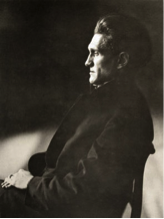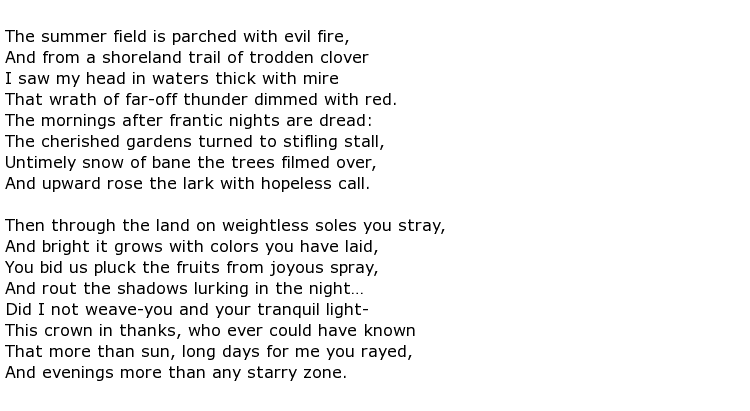 Stefan Anton George, a German who translated a number of works by Baudelaire, Dante and Shakespeare into German was predominantly a poet that also edited literary magazines.
Stefan Anton George, a German who translated a number of works by Baudelaire, Dante and Shakespeare into German was predominantly a poet that also edited literary magazines.
He was born in Büdesheim on the 12th July 1868, a place which now forms a piece of Bingen in the Rhineland-Palatinate, the son of a wine merchant and inn keeper. He completed his education at the age of 20, and had a keen interest in becoming a writer. George was keen to further his knowledge of literature and did so by travelling to European capitals such as Paris, London and Vienna. In Paris he joined fellow artists and writers at soirées held, usually on Tuesdays, at the home of Stéphane Mallarmé.
In his early twenties, George had his first poems published and took on the running of a magazine by the name of Blätter für die Kunst. In addition to this, he was a very important member of an organisation of leading academic and literary figures, the George-Kreis, with members such as Ludwig Klages and Friedrich Gundolf. Members also took an interest in political and mystical themes although George, himself, distanced himself from politics in his later life when the National Socialists took over Germany. He, and probably many of his contemporaries, favoured the famous Conservative Revolutionary movement.
With Europe plunging headlong into the First World War, George made a prediction that things would end badly for Germany. His pessimism was outlined in a poem called Der Krieg and it was well-founded. When, in 1933, he was approached by Joseph Goebbels to become the president of an Academy set up to support the arts, he refused the offer and promptly left Germany. He took up residence near Locarno in Switzerland but, sadly, he died there shortly after.
His poetry is usually described as a deliberate attempt to eschew the trend at the time for realism as practiced by most new German writers. He saw poetry as an art form that had no place in the modern world; his philosophy was very much “art for art’s sake”. Although often lyrical in terms of tone, he favoured the Greek classical style, using arcane language to express himself, often in an aristocratic way. His earlier time spent in Paris under the influence of Mallarmé and Paul Verlaine led to many connections with the historic French Symbolist movement.
Here is a typical example of his lyrical style of writing, a poem called Giving Thanks:

He was an innovative writer, often experimenting with metre, typography and punctuation. One of his collections confirmed his sexuality. The love poetry contained in Algabal was directed towards a man called Maximilian Kronberger, known to him affectionately as “Maximin”. In 1928 he published

and it was dedicated to a man who, clearly opposed to the burgeoning power of the Nazis, would eventually be involved in the plan in J uly 1944 to assassinate Hitler.
uly 1944 to assassinate Hitler.
George favoured a society led by a strong person supported by artistic and intellectual elite members – a concept clearly at odds with Nazi ideologies. He considered himself something of a messiah with priestly qualities and future senior Nazi Albert Speer said “…. there was something magnetic about him”. The national socialists most certainly tried to claim him as a vital influence while George made every effort to distance himself from them.
Shortly after they seized power in 1933, George moved to Switzerland and died that same year, on the 4th December 1933. He was aged 65.

